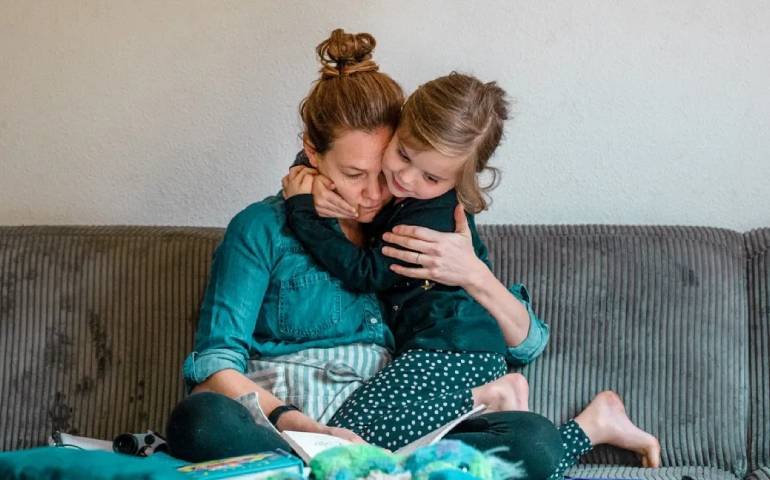
What Is Childhood Trauma?
Childhood trauma refers to distressing or overwhelming experiences that occur during a person’s early years of life, typically before the age of 18. These traumatic events can have a significant and lasting impact on a child’s emotional, cognitive, and physical development. Childhood trauma can take various forms and may result from a single event or a series of adverse experiences. The severity of the trauma can vary widely, depending on factors such as the child’s age, resilience, and the nature of the event.
Types of Childhood Trauma:
Physical Abuse: Physical abuse involves the intentional infliction of harm or injury on a child by a caregiver or another person. It can include hitting, slapping, kicking, burning, or any other form of physical violence.
Emotional Abuse: Emotional abuse is characterized by chronic emotional maltreatment that undermines a child’s self-esteem and emotional well-being. This can include constant criticism, humiliation, belittlement, and verbal threats.
Sexual Abuse: Sexual abuse involves any form of sexual activity or exploitation imposed on a child by an adult or an older individual. This includes unwanted touching, molestation, exposure to sexual content, or forced participation in sexual acts.
Neglect: Neglect occurs when a child’s basic needs, such as food, clothing, shelter, and medical care, are consistently not met by caregivers. Emotional neglect, where a child’s emotional needs are not adequately addressed, can also be highly damaging.
Witnessing Domestic Violence: Children who witness domestic violence between their parents or caregivers may experience significant trauma, even if they are not direct victims of the violence themselves.
Loss and Abandonment: The death of a loved one, separation from primary caregivers, or placement in foster care can be traumatic experiences for a child, leading to feelings of grief, fear, and insecurity.
Effects of Childhood Trauma:
Childhood trauma can have a profound impact on a child’s developing brain and emotional regulation, often resulting in long-term consequences that extend into adulthood. Some of the effects of childhood trauma may include:
Emotional and Psychological Consequences: Children who experience trauma may develop symptoms of anxiety, depression, post-traumatic stress disorder (PTSD), dissociation, and difficulties forming healthy relationships.
Behavioural Issues: Traumatized children may exhibit challenging behaviours, such as aggression, withdrawal, self-harm, substance abuse, or delinquency.
Cognitive Impairments: Childhood trauma can affect cognitive functioning, including memory, attention, and problem-solving abilities.
Physical Health Problems: Chronic stress from childhood trauma can contribute to physical health issues like chronic pain, headaches, gastrointestinal problems, and a weakened immune system.
Attachment Issues: Trauma can disrupt a child’s ability to form secure attachments with caregivers, leading to trust issues and difficulties in forming healthy relationships later in life.
Healing and Recovery:
Healing from childhood trauma often requires therapeutic intervention and support. Various therapeutic approaches, such as trauma-focused therapy, cognitive-behavioural therapy (CBT), and play therapy, can help individuals process their traumatic experiences and develop healthier coping mechanisms. Building a strong support system of caring individuals and engaging in self-care practices can also contribute to the healing process.
It’s essential to recognize that healing from childhood trauma is a journey that requires time, patience, and self-compassion. Seeking professional help and support is crucial for survivors of childhood trauma to reclaim their lives and move towards a healthier and more fulfilling future.

Childhood Trauma in Adults
Childhood Trauma in Adults: Understanding the Lingering Impact
Childhood is a crucial stage in human development, shaping our personalities, emotions, and coping mechanisms. However, for some individuals, this formative period may be marred by experiences of childhood trauma. Childhood trauma can have lasting effects on adults, impacting their mental, emotional, and physical well-being. In this blog, we will explore the concept of childhood trauma in adults, its potential consequences, and the importance of seeking healing and support.
Understanding Childhood Trauma:
Childhood trauma refers to distressing experiences that occur during early life and overwhelm a child’s ability to cope emotionally. These traumatic events can be of various forms, such as physical or emotional abuse, neglect, witnessing domestic violence, experiencing natural disasters, or undergoing significant loss. The impact of these experiences may linger into adulthood and affect a person’s overall functioning.
The Long-term Consequences of Childhood Trauma in Adults:
Mental Health Challenges: Adults who have experienced childhood trauma may be at a higher risk of developing mental health issues such as depression, anxiety, post-traumatic stress disorder (PTSD), and personality disorders. The trauma can disrupt the brain’s normal development, leading to difficulty in processing emotions and regulating mood.
Emotional Difficulties: Childhood trauma can lead to difficulties in managing emotions, resulting in emotional volatility, intense feelings of anger or fear, and problems forming healthy relationships. Survivors may struggle with trust issues and fear of intimacy, leading to isolation and emotional withdrawal.
Physical Health Effects: Research suggests that childhood trauma can have physical health implications, including a higher risk of chronic illnesses like heart disease, autoimmune disorders, and obesity. The constant stress from traumatic experiences can negatively impact the immune and nervous systems.
Substance Abuse and Addictions: Many adults who have experienced childhood trauma turn to substance abuse as a coping mechanism. Drugs and alcohol may temporarily numb emotional pain, but they can lead to addiction and exacerbate mental health problems.
Self-destructive Behaviours: Some individuals may engage in self-destructive behaviours, such as self-harm or risky activities, as a means to cope with overwhelming emotions or feelings of unworthiness.
Healing and Coping Strategies:
Seek Professional Help: If you have experienced childhood trauma and are struggling with its aftermath, seeking professional help is essential. A trained therapist or counsellor can provide support, validate your feelings, and guide you through the healing process.
Develop Coping Skills: Learning healthy coping mechanisms is crucial for managing the effects of childhood trauma. Techniques such as mindfulness, meditation, and breathing exercises can help regulate emotions and reduce stress.
Establish Supportive Relationships: Building supportive relationships with friends, family, or support groups can provide a sense of belonging and help combat feelings of isolation.
Engage in Self-care: Prioritize self-care activities that promote physical and emotional well-being, such as regular exercise, a balanced diet, and sufficient sleep.
Challenge Negative Beliefs: Childhood trauma can lead to negative self-beliefs. Challenge these beliefs and work on building a positive and compassionate self-image.


